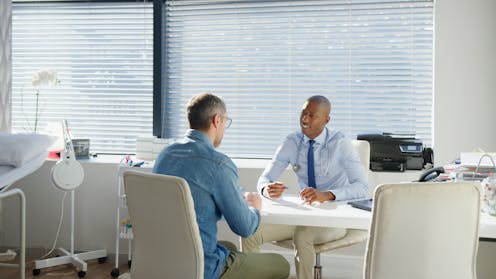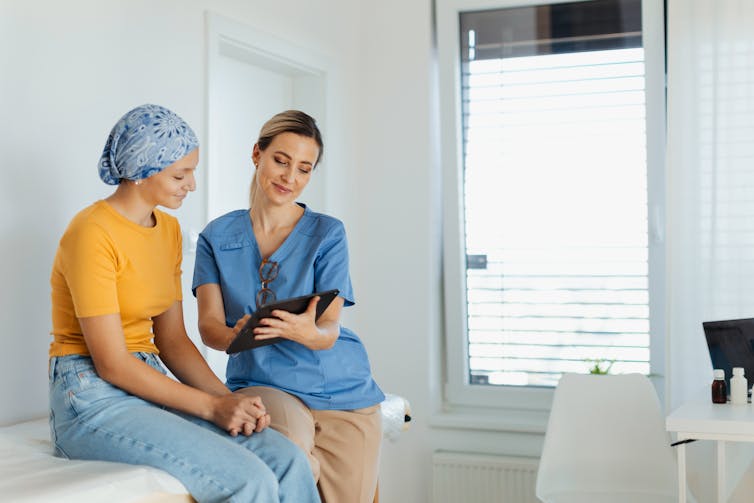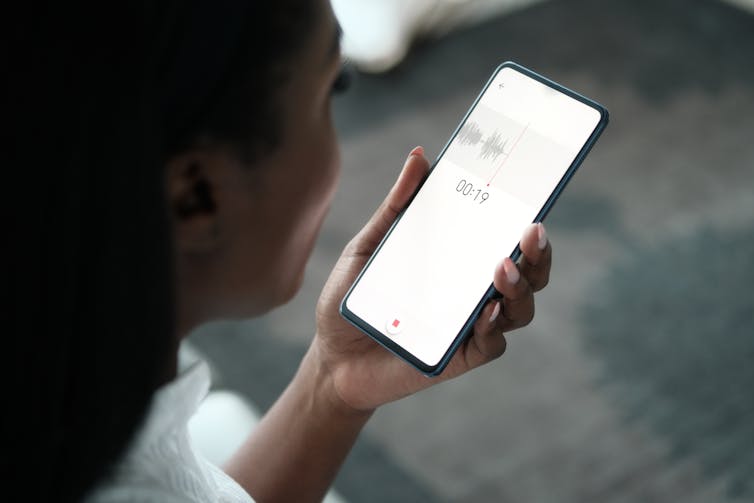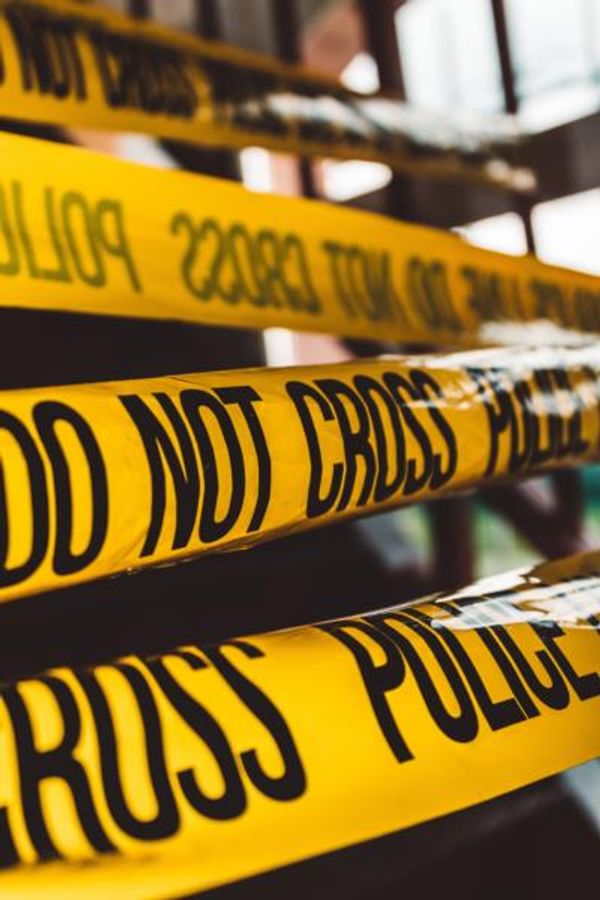
You’re at a doctor’s appointment where you are told you might have a serious illness. You will have to undergo several different tests to get a firm diagnosis. The treatment regime is complicated.
When you leave the appointment, you are worried and you feel overwhelmed with information. You realise you’re already starting to forget most of what the doctor said.
This experience is very common. Research shows people often forget, or mis-remember, what they are told during medical appointments.
One approach to addressing this problem is recording a medical appointment to play back later or share with others. Our recent research looked at how common this is in Australia, and how people use the recordings they’ve made.
How recording might help
Research exploring what happens when patients are given recordings of medical appointments has shown significant benefits. The practice helps patients recall and understand their consultation and gives them greater satisfaction in their care.
Studies looking at consultation recordings at selected Australian hospitals have found recording also improves patients’ sense of control.
What we haven’t known so clearly is whether patients are actually making recordings in real life. And if so, why? Are they doing it openly or in secret? And what do they think about sharing these recordings with other people?
What we learned
We ran an online survey of Australian adults in mid-2022, asking them these sorts of questions.
Of 236 people who completed the survey, 71% said they would consider recording a doctor’s visit. Some 26% had openly done so (that is, they’d recorded a medical consultation with permission from the clinician).
Their reasons included wanting to keep track of important medical information, and listen again to improve their understanding. As one person told us:
With a cancer diagnosis there is a lot of information to take onboard and process. You can feel rushed and not have time to take notes.
Another recorded to help manage living with disability:
I have an acquired brain injury which impacts memory and was not able to take anyone with me. I am also hearing-impaired so use a transcription app to ‘read’ what is being said when the other person is wearing a mask and I am unable to lip read.

Covert recording (recording without asking or telling the doctor) was also quite common – 22% of people in our survey had done this, or knew someone who had.
Mostly, people recorded in secret because they worried their doctor might say no if they asked permission (we know this does happen).
While some people felt uncomfortable about asking, others recorded covertly because they had concerns about the advice and care they were receiving, and wanted a second opinion.
Whether people recorded with or without permission, they generally valued being able to record a consultation, especially when they were vulnerable (for example, when they were attending appointments alone or receiving difficult news).
Sharing recordings
Patients described sharing their recordings only with trusted others, such as family or friends involved in their care, or other members of their health-care team such as their GP, disability support worker, or therapist.
Previous research has shown that while many health professionals support recording, others may feel uncomfortable about being recorded because they worry about the recording being posted on social media, or used in other potentially harmful ways beyond their control.
However, our study found patients are strongly opposed to sharing recordings more widely, such as on social media. It was seen as a significant breach of trust in the health professional-patient relationship. One person said:
To do so would be very unethical […] What is shared can very easily be misconstrued, misrepresented.
Patients equally did not want to share their own personal health information on the internet.
Is recording actually allowed?
Making a recording of a private conversation, whether audio or video, is governed by the law. In Australia, the law varies between different states and territories.
In several jurisdictions (Victoria, Queensland, the Northern Territory, New South Wales, the Australian Capital Territory and Tasmania), patients don’t need permission if the recording is only for their own use. But in South Australia and Western Australia, recording without permission could result in a fine or jail term.
Regardless of the law, asking for someone’s OK to record them is usually the best option.

Just over half (56%) of our respondents wanted their clinic to allow recording, ideally establishing relevant policy and guidelines.
A few health services are moving towards supporting recording, recognising it can be both lawful and beneficial. However we’ve found most services pay little attention to this issue.
Some limitations
Our survey was only available in English, so it didn’t capture the experiences of people in diverse communities. But previous research has found this group can particularly benefit from recording medical consultations.
We also think recording may not happen as often as our results suggest. We recruited participants through social media and health consumer networks, and people who answered the survey probably already had an interest in the topic.
Still, the results are a useful indication that people in Australia do sometimes record their visits to the doctor, and would like their health services to support them to be able to.
What we found also reflects the picture elsewhere. One study in the United Kingdom found 15% of participants had recorded a doctor covertly. A study in the United States found almost 19% of people had recorded a consultation (3% covertly and 16% with permission).
Our study supports the idea that being able to record medical consultations improves patients’ recollection and understanding of what the clinician has told them. Policies and practices that prevent recording, without good reason, should be amended to support recording, with clear guardrails around consent and disclosure.
The authors do not work for, consult, own shares in or receive funding from any company or organisation that would benefit from this article, and have disclosed no relevant affiliations beyond their academic appointment.
This article was originally published on The Conversation. Read the original article.







